20 years since the first GSM call – new era of communications in Tatarstan
First subscriber Mintimer Shaimiev’s first words were: ‘‘Hello! Can you hear me? Over’’
This year we all celebrate a historic event whose scale and importance are proved by time. The first GSM phone call by Santel operator that belonged to TAIF-Telcom was made in Kazan 20 years ago. The TAIF JSC director general remembers this event and congratulates on this memorable date in Realnoe Vremya online newspaper.
Today I don't even believe that a wireless call once was a miracle, while then, 20 years ago, the occasion was unbelievable! I distinctly remember that day, 3 March 1999. First President, now State Adviser of the Republic of Tatarstan Mintimer Shaimiev officially cut a red ribbon at the entrance of Tattelecom State Unitary Enterprise of Communications Management. Current Tatarstan President Rustam Minnikhanov (prime minister of the Republic of Tatarstan from 1998 to 2010) and Chairman of the Russian State Committee for Communications and Informatisation (from 1997 to 1999) Aleksandr Krupnov also took part in the festive ceremony. The president was honoured with the right to make the first call in the republic's new standard for mobile communication. Mr Shaimiev called one of TAIF employees. Both subscribers whose talk everyone listened to with great pleasure said to each other loudly and joyfully: ''Hello! Can you hear me? Over'', everyone was joking and congratulating each other. This is how a new communication era for the Republic of Tatarstan began.
The road to this milestone was long and thorny. A subsidiary Radiotelephone Technologies, or RTT, was created in 1993, it played a colossal role in developing communications in the republic by implementing the trunked telephone and radio system in Tatarstan, which was acceptable during that period. Its appearance, first of all, was driven by an operational need. Officials of industrial companies understood that businesses monthly lost millions of rubles only because enterprises weren't able to contact partners, state services or, for instance, captains of tankers transporting Tatarstan oil on time. The problem gave rise to an innovative idea – it was decided to create their own mobile network and develop the telecommunication sphere in Tatarstan to the level of the most technologically advanced countries of the world.
It was an uneasy decision: then many experts expressed an opinion that developing trunked communication had good prospects, but we decided to focus on a promising and completely new for those years GSM standard.
Even then we saw the rapid development of that standard for mobile communications in the majority of European countries, which began in the middle of the 1990s. And we wanted to create such a network in Tatarstan, too.
Advantages of this standard were obvious: firstly, it was a purely digital standard with a big capacity of subscribers using a time-division multiple access method, that's to say, as much protected from interference and unauthorised access as possible. Secondly, the GSM standard provided users with a possibility of automatic roaming both in Russia and when travelling between states. Thirdly, the GSM standard provided subscribers with a mass of additional options. Apart from the above-mentioned automatic roaming, it's a possibility of redirecting, prohibiting, call waiting and holding, a group call (in teleconference), identifying a number, receiving and sending voice messages and so on. The enumerated possibilities made the GSM standard spread: if 250,000 million subscribers used it in more than 130 countries of the world in 2000, today this number totals 5,1bn people using this standard in 219 countries of the world. The landline GSM networks cover over 90% of the population worldwide nowadays.
In November 1998, we created a company TAIF-Telcom (TAIF-Telcom PJSC) – the first regional licensee for the GSM-900 standard. The company began the construction of the regional network with the trademark of Santel. 'San' in Tatar stands for 'number', 'tel' is 'language'. A language of numbers, a digital network.
By late 1999, TAIF-Telcom provided all the cities as well as major traffic arteries with a stable GSM standard mobile network. A telephone switchboard with a capacity of 100,000 subscribers was launched in summer 2000. The company began to offer new services and expand the network's service infrastructure. As a result, Santel's subscriber base grew almost ten times within a year.
A completely new stage of development began in 2001: TAIF-Telcom began the construction of GSM-1800 base stations. The work in the two standards allowed to successfully cope with growing loads due to a rapidly augmenting subscriber base. In late 2001, this number crossed the bar of 100,000, a 300,000 th subscriber was connected in February 2003.
In terms of the size of the subscriber base, TAIF-Telcom was in the top ten mobile operators in Russia, while in terms of coverage, the Tatarstan company occupied leading positions among Russian regions having created the biggest regional network. Without exaggeration, Santel to a certain degree became a trademark of Tatarstan. It was the first, the best in the republic and one of the leading GSM operators in Russia. The coverage of TAIF-Telcom's services amounted to over 98% on the territory of Tatarstan! TAIF-Telcom reached the world level in mobile communication services.
It already became known at this stage of development that TAIF put enough effort and money to make this project successful: our participation wasn't needed any more for the company's further development – Santel was successfully developing, fully financing itself and making a profit. For this reason, we weren't against the decision of such a highly professional team as MTS PJSC (comes under Sistema Public Joint Stock Financial Company) to buy TAIF-Telcom from us. In April 2003, TAIF-Telcom was sold to the biggest mobile communication operator in Eastern and Central Europe MTS PJSC.
The progressive telecommunication project helped to develop the republic's economic infrastructure, created favourable conditions for running a business successfully.
In the course of its operation, TAIF-Telcom faced a problem of connecting the mobile network to the public switched telephone network. It turned out that a big number of landline telephone stations in Tatarstan – step-by-step switches – were created more than 40 years ago. The obsolete equipment made the interface between the contemporary mobile communication system and the landline networks problematic, almost impossible. Then officials of the Ministry of Informatisation and Communications of the Republic of Tatarstan, TAIF, Tattelecom and Kazan Urban Telephone Network PJSC made a decision to modernise the obsolete exchanges.
The gist was the following: TAIF purchases the obsolete exchanges from Kazan Urban Telephone Network PJSC and Tattelecom, modernises and installs the latest switchboards, while Tattelecom and Kazan Urban Telephone Network PJSC modernise the rest of the telephone exchanges and install new digital equipment on the money they got from selling the old exchanges. Moreover, as the contemporary digital switchboards were ten times smaller than step-by-step switchboards (an approximate proportion is 1:10), all telephone exchanges start to have a huge number of free spaces for the staff and to locate up-to-date digital equipment for all types of telecommunication services provided around the world.
In the end, the win was big: firstly, the cutting edge telephone exchanges appeared in the republic. Tattelecom got a chance to equip the free spaces for all types of telecommunication services. Secondly, the problem of connection between the mobile and landline networks at the latest level was solved. Thirdly, having become a pioneer in the mobile communication market in the Republic of Tatarstan, TAIF prepared a fertile ground for currently arriving telecommunication operators to Tatarstan, too. So TAIF was involved in another business segment having created a special company for this purpose – IntelSet (Intellectual Networks PJSC).
IntelSet company's strategic goal was to enable citizens of Kazan and other cities, settlements and even villages of the republic to go beyond the conventional telephone communication by getting access to digital equipment with the use of computer-integrated telephony, an integrated package of telecommunication and multimedia services, including the Internet, IP telephony, videoconferencing, telelearning and telemedicine, online games, cable television and radio broadcasting.
High quality of services was provided by the ADSL system of high-speed connection for subscribers by Alcatel company, the use of computer-integrated telephony on the basis of hybrid fibre-coaxial.
The rapid development of the telecommunication business logically brought TAIF to the creation of TVT TV and radio company in autumn 1999 aimed to meet increased requirements of the market for different broadband communication services, first of all, cable television.
With the coming of TVT, a new page in TAIF's telecommunication business appeared – the implementation of broadband communication services, first of all, cable television, began. Having thoroughly studied experiences abroad, we began the construction of a transport telecommunication network with triplicated redundancy across the republic, which connected all the cities, large settlements and regional centres of Tatarstan with fibre-optic links 7,000 km long with a capacity of up to 32 fibres. The biggest Russian multi-service network for 180,000 flats was built and put into operation. Over 50,000 flats and organisations of the city were connected during the first year of the network's operation already.
In June 2003, the first stage of TVT telecommunication network covering three cities of the republic was commissioned. All other regional centres were connected thanks to the second stage. TVT became the biggest TV provider in Tatarstan. And it's almost 700,000 subscribers to cable television in 15 settlements and digital television in 10 cities of the republic. The company also provided 100 Mbps broadband Internet access in eight cities and cable telephony in Kazan, Nizhnekamsk and Naberezhnye Chelny. The coverage of broadband Internet access totalled about 600,000 households across the republic.
The sale of the biggest Tatarstan cable operator TVT to MTS PJSC was held in autumn 2011. So TAIF Group of Companies laid the foundation of the development of the telecommunication sphere at the level of the most developed countries of the world.
The telecommunication breakthrough in Tatarstan began with these consecutive steps fraught with their own difficulties. Right this information and telecommunication infrastructure allowed to create an electronic republic, in fact.
Looking back, we warmly remember the events of those years and are sincerely glad that were greatly honoured to become pioneers in developing the GSM standard, the Internet, cable and digital television, that our projects became a real breakthrough in communication technologies and gave people the joy of unlimited communication in the Republic of Tatarstan.
I am extremely grateful to officials of the Republic of Tatarstan in the person of First President, current State Adviser Mintimer Shaimiev, President Rustam Minnikhanov, Minister of Communications and Informatisation in 1993-2005 Rinat Zalyalov for the huge support in implementing these large-scale and grandiose projects.
Mobile communication, the Internet, cable and digital television have become an indispensable part of every Russian's life – both young and old – in the last ten years. Today Sistema PJSFC including MTS PJSC are leading providers of mobile and landline network, the Internet access, cable and satellite TV broadcasting, digital services and mobile applications, financial and e-commerce services as well as convergent IT solutions in systemic integration, the Internet of Things, monitoring, data processing and cloud computing in Russia and CIS countries. Providing innovative services and solutions, MTS makes a considerable contribution to the economic growth and improvement of the quality of life of tens of millions of people in the countries it's present in.
And today we are very pleased to share the joy of this moment together with all clients, officials and employees of MTS PJSC mobile network because we were directly involved in the creation and development of this wonderful company!
Without exaggeration, nowadays the telecommunication sector in the Republic of Tatarstan is one of the best at MTS. We are sincerely grateful to the participants of the events of those years, especially workers of TAIF Group of Companies who overstretched themselves, implemented these unique projects as soon as possible despite the economic crisis that broke out in August 1998 and could have put paid to all our plans. Many thanks for the truly hard work and great patience.
I personally and on behalf of TAIF Group of Companies congratulate the Board of Directors and the top management of Sistema PJSFC in the person of Board Chairman Vladimir Yevtushenkov, President, Board Chairman Andrey Dubovskov, President of MTS PJSC Aleksey Korn, Director of MTS PJSC brand in the Republic of Tatarstan Marat Shakirov, all employees of MTS PJSC and TAIF Group of Companies, all mobile network users on this historic date! I wish you all professional successes and achievements, might new breakthrough projects and ambitious plans become a reality! And, of course, keep in touch!
Sincerely yours, TAIF JSC Director General
А. Shigabutdinov
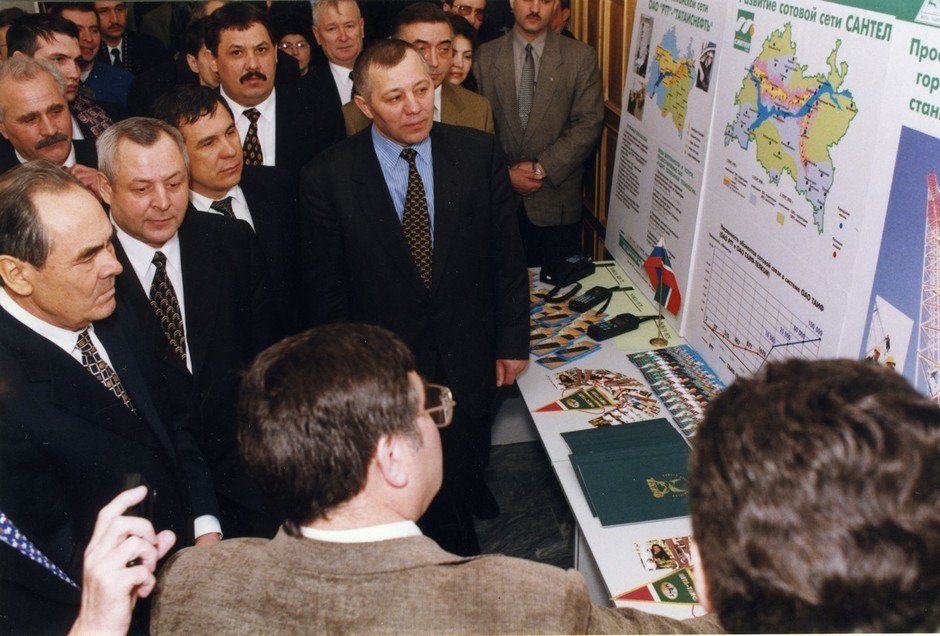
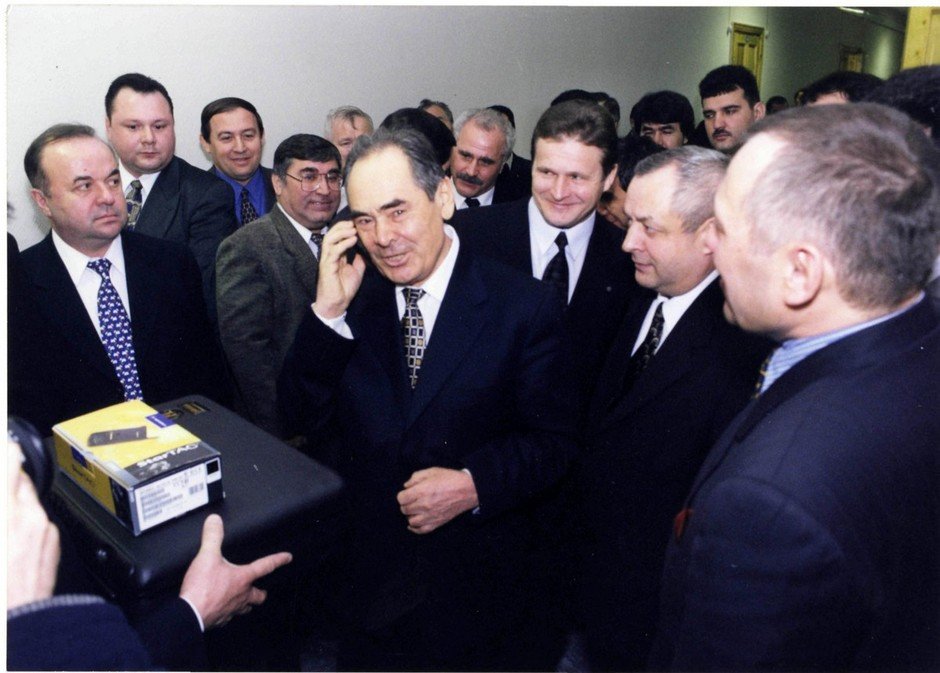
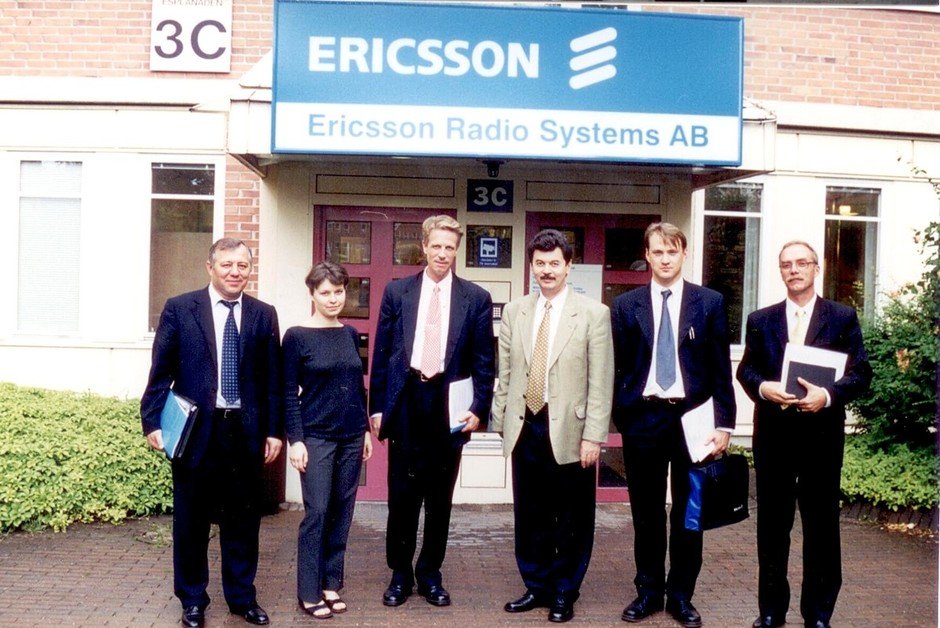
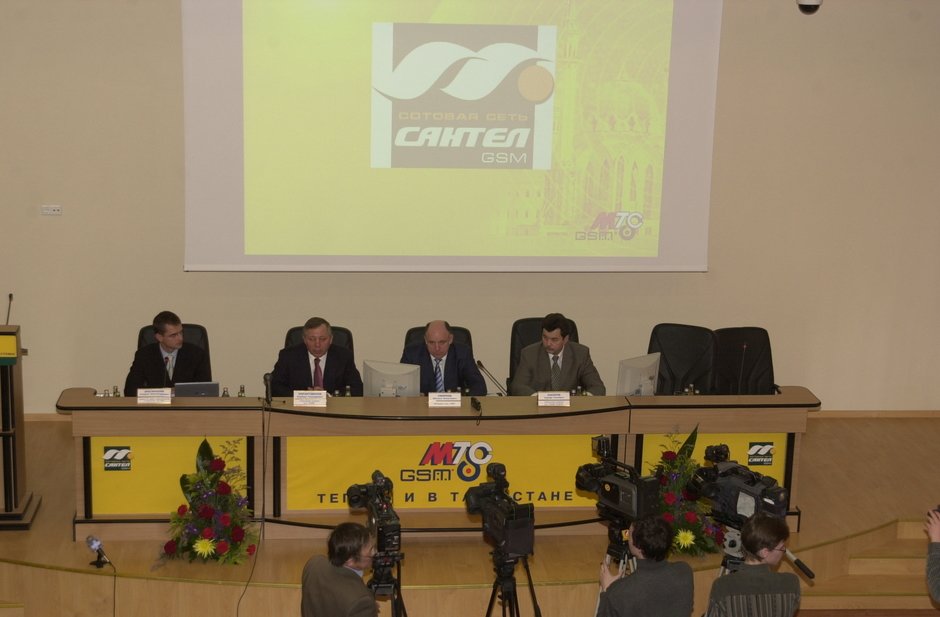
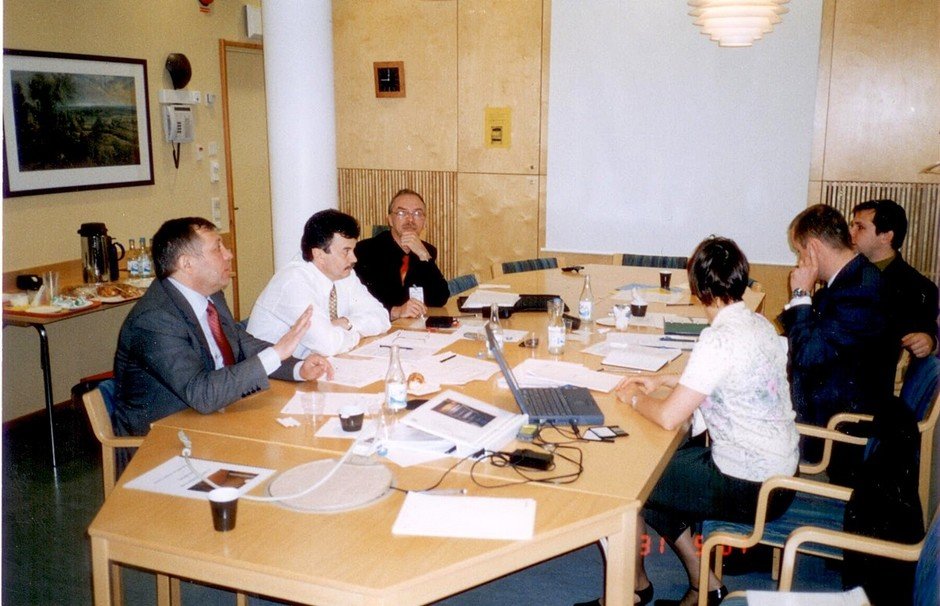
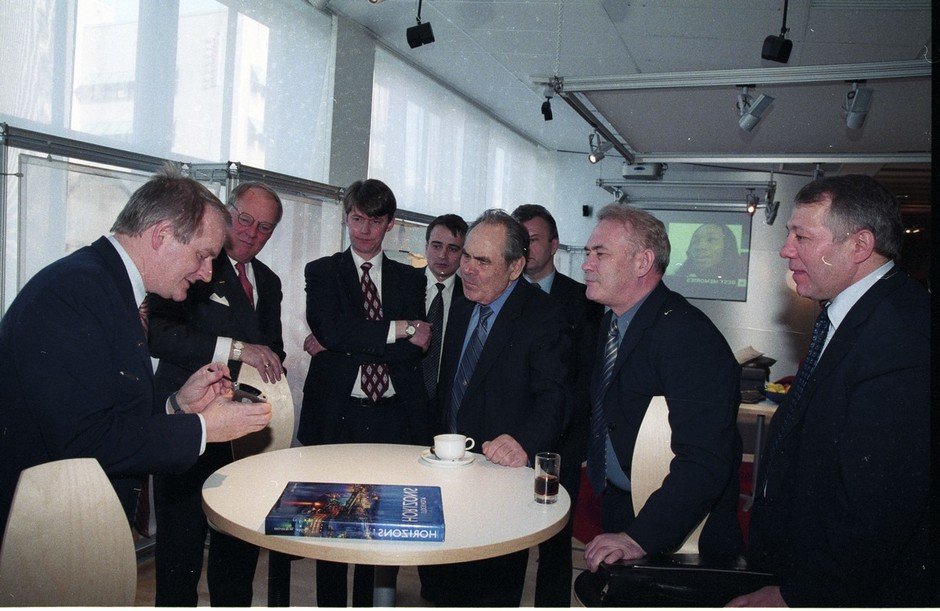
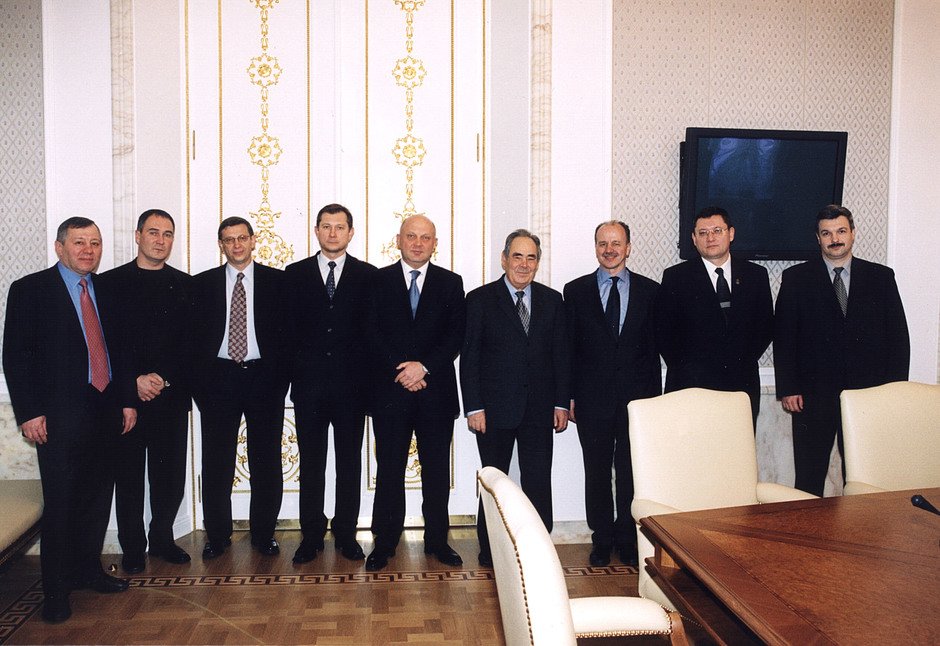
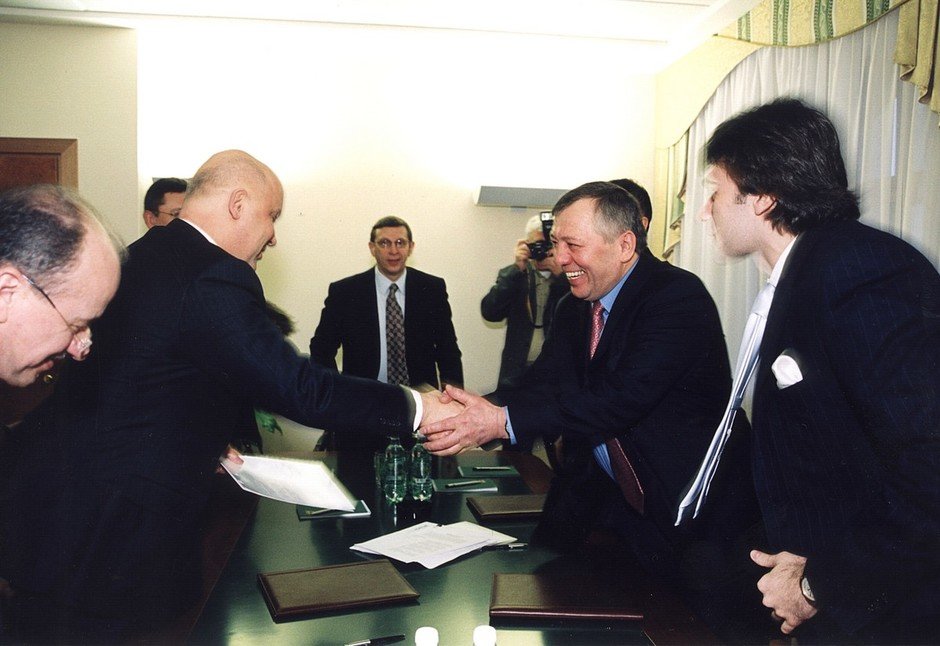
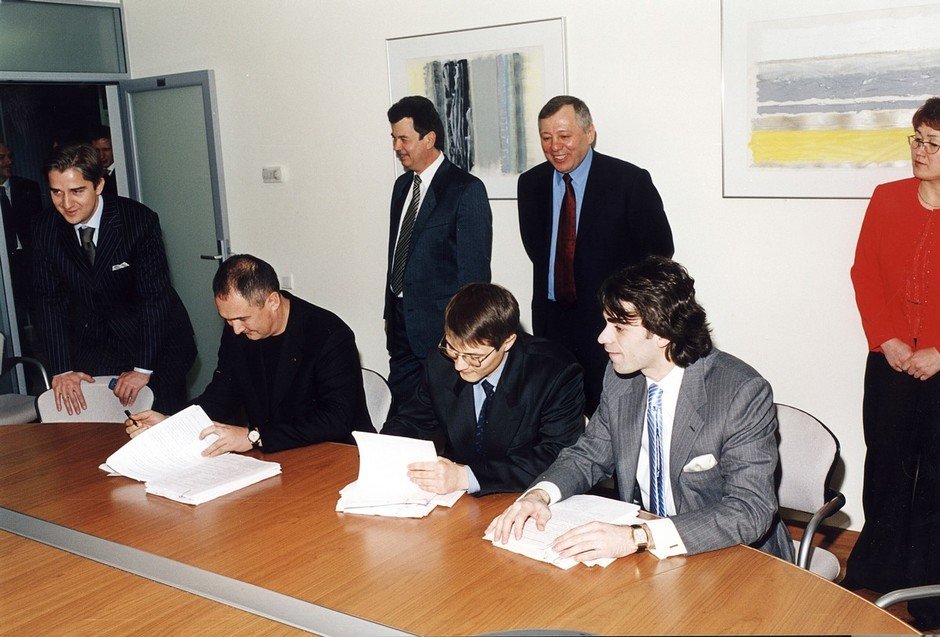
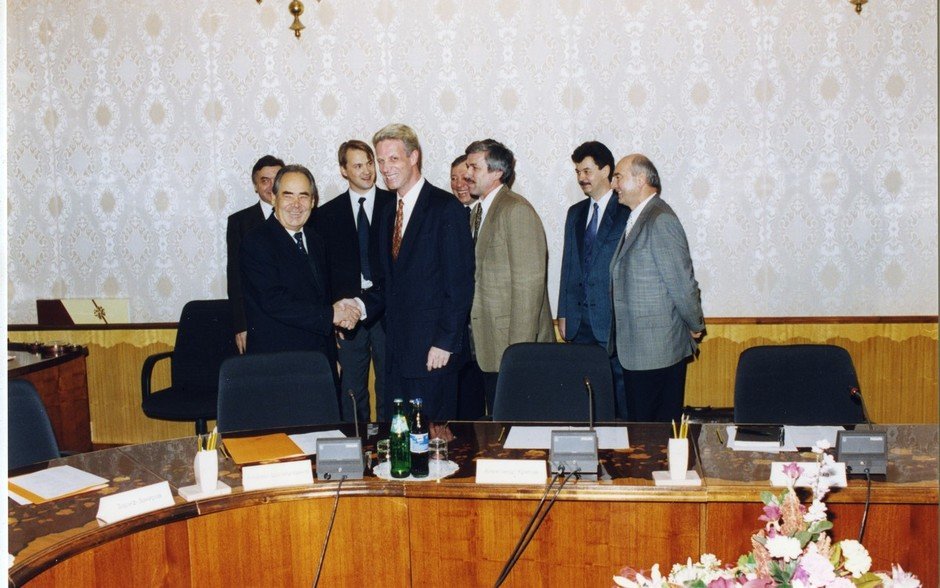
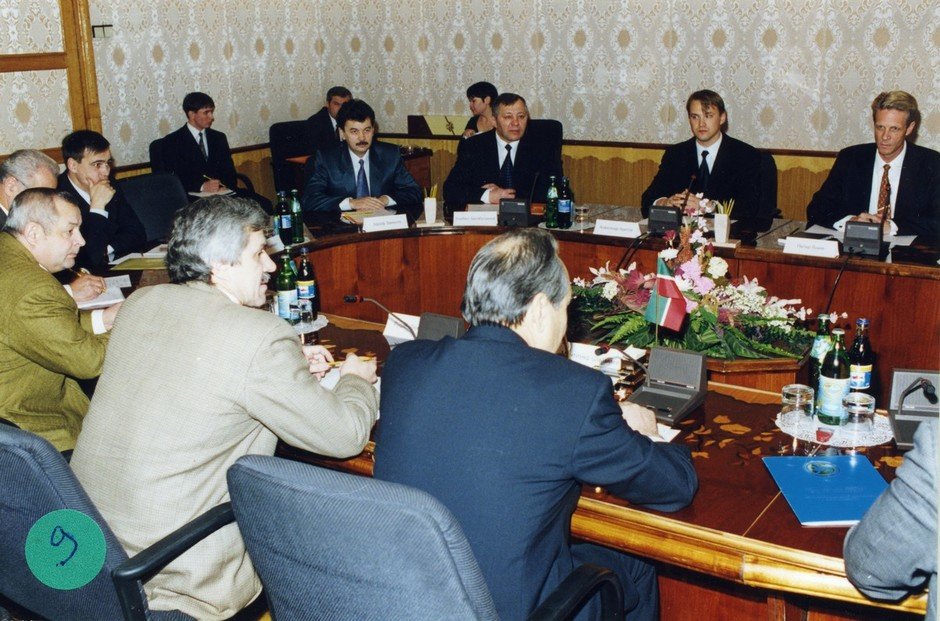
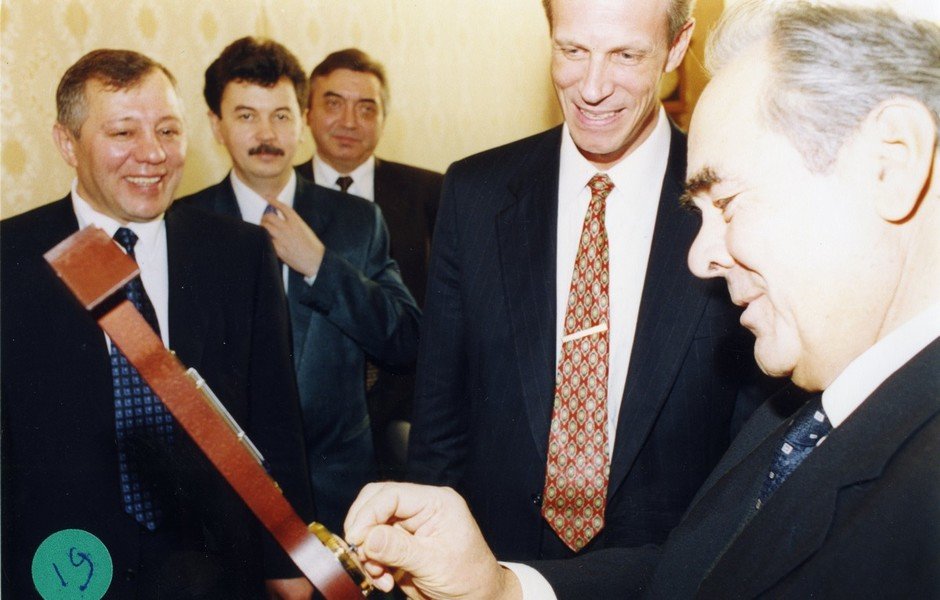
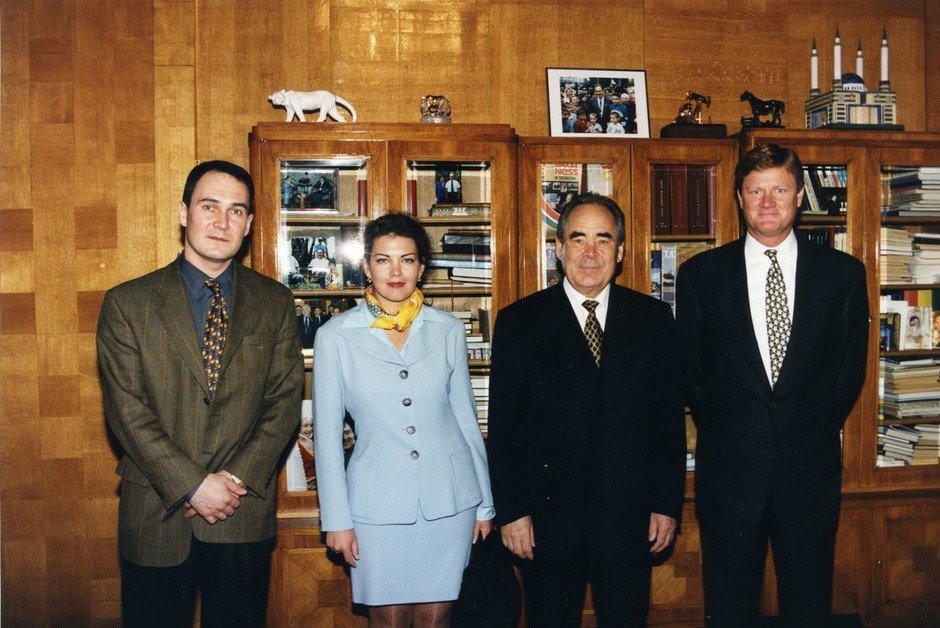
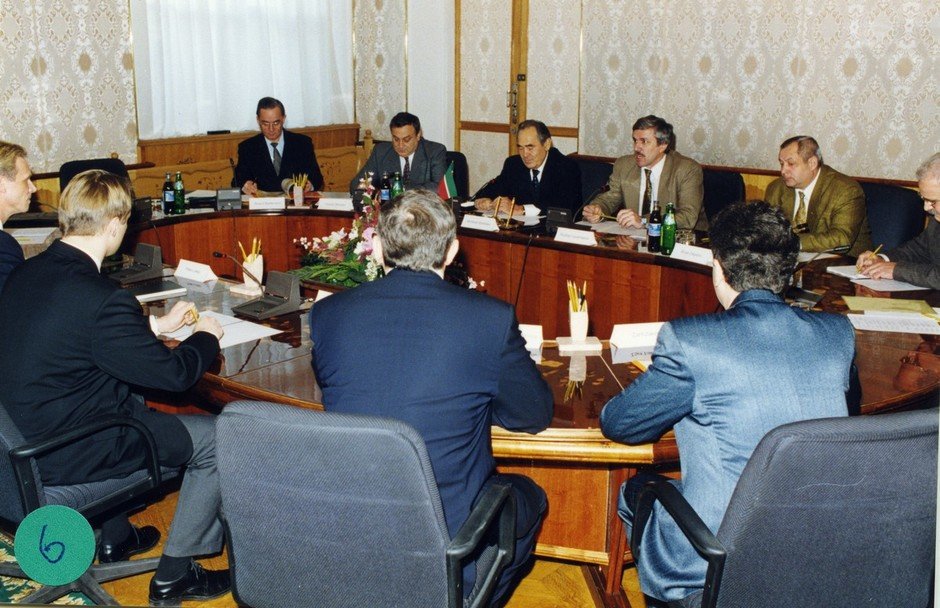
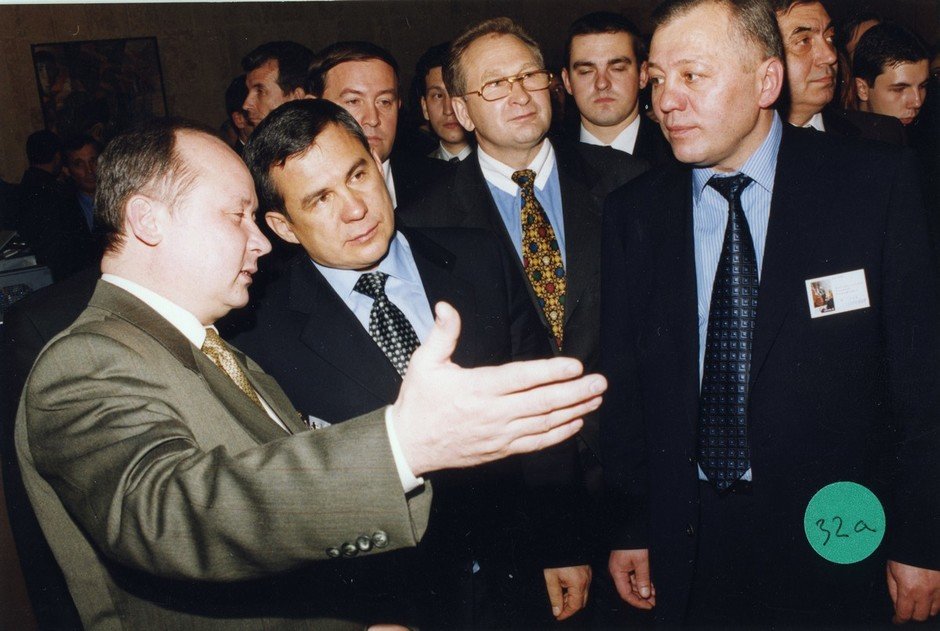
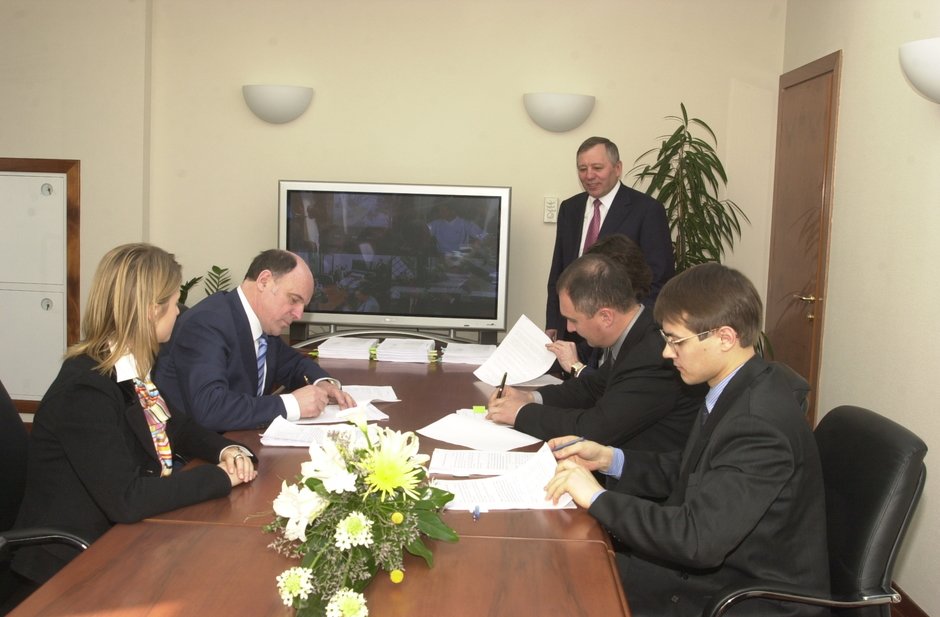
- The first GSM call in Tatarstan and one of the first in Russia was on 3 March 1999. Then-Tatarstan President M. Shaimiev and Chairman of the Russian State Committee for Communications and Informatisation Aleksandr Krupnov made this symbolic call
- First Tatarstan President Mintimer Shaimiev making the first call on Santel mobile network, 1999
- TAIF-Telcom and Ericsson completed the construction of the first GSM network in Tatarstan, Stockholm, 1999
- In 2001, TAIF-Telcom began the execution of the second stage of the project: by the end of the year, the mobile network covered all regional centres and augmented the number of subscribers up to 100,000, Stockholm
- Talks with officials of the government of Sweden, a visit to Scania and Ericsson concerns, Stockholm, 25 March 2002
- The deal on sale of Santel is a historic event for Tatarstan
- Handshake to mark the conclusion of the deal on sale of the biggest mobile operator TAIF-Telcom to Mobile TeleSystems PJSC, Kazan, 2003
- Signing of documents in the office of Sistema PJSFC, Moscow, 26 March 2003. TAIF PJSC represented by R. Shaimiev, R. Shigabutdinov, A. Abugov
- TVT is one of the promising areas of business that TAIF hasn’t so far mastered today